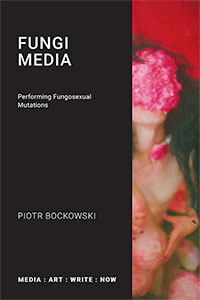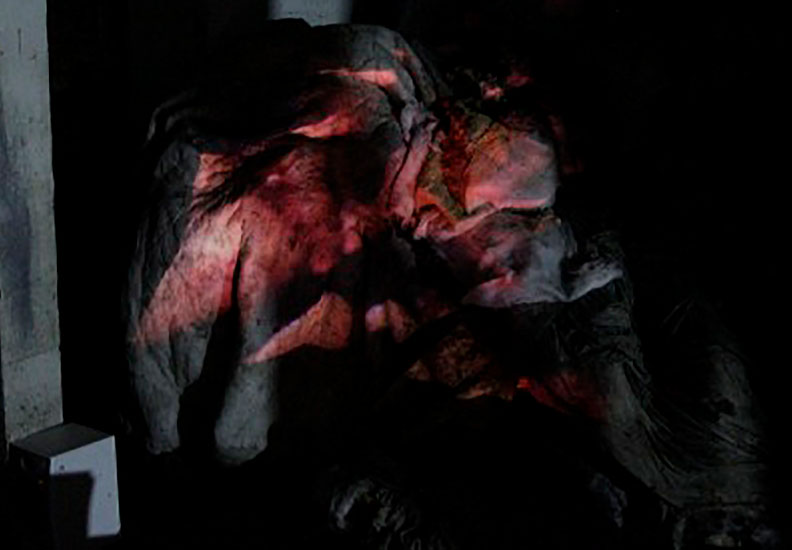Fungi Media: Performing Fungosexual Mutations
by Piotr Bockowski

- MEDIA : ART : WRITE : NOW
- Published: 2024
- ISBN: 978-1-78542-139-6
- PDF ISBN: 978-1-78542-138-9
Fungi Media positions performance art of bodily mutations as a form of corporeal philosophy. Examining ecologies of rot and fungal decomposition, it outlines a theory of fungosexuality beyond sexual reproduction and binary gender roles. This theoretical perspective repositions queer sexualities in the context of the original meaning of the term ‘queer’, which is ‘rot’ – and which stands for a fungi-induced process of decomposition. With this, Fungi Media explores the foundational importance of rot for both breaking down and sustaining bodies, relationships and life as such.
The project was developed in a squatted sewage space in London, adopted by the author as a laboratory for mutant performance. The space hosts Chronic Illness events, where Internet-inspired body artists enter an environment populated with fungi. The interventions of human performers are incorporated into the rotten physiology of the space, which itself becomes a live entity. This book involves those events in the analysis of connections between media technologies and primal life processes. It also offers strategies for urban dwelling which transcend normative family life.
 Click on the image to view Holobiont by Piotr Bockowski.
Click on the image to view Holobiont by Piotr Bockowski.
Bockowski’s book – like its decompositional protagonist, fungi – performs what it also examines: some intensive ways in which queer, networked and entangled bodies can break down complex and compromised entities to ‘enable new mutant fusions’. Fungi Media is a fecund new contribution to the emerging field – both figural and literal – of ‘libidinal ecology’; and the book’s exploration of ‘fungosexuality’ is as rich, gamey, provocative and risky as foraging hungrily in a toxic urban ecology full of unfamiliar toadstools.Dominic Pettman, University Professor of Media and New Humanities, The New School for Social ResearchIn its distinctive approach of ‘cross-contamination’, Fungi Media is both a relentlessly innovative exploration of theoretical intercrossings between bacteria-infested corporeality and post-Internet technologies - with new insights especially into Antonin Artaud’s pivotal ‘body without organs’ work - and also a documentation of an astonishing decade-long performance art series held at a subterranean fungi-infested squatted space of decomposition and sexual reinvention in north London. This will be a seminal, prescient and provoking book for understanding future proliferating mutations and creative rottings of the body in relation to technologies.Stephen Barber, Professor of Art History, Kingston UniversityFungi Media explores the idea of the body as a cultural network, focusing on how life is identified and experienced in the digital age. The book is crafted in a post-Internet format, which encompasses the material technology related to human mutations. It navigates the interactions of sexuality, positioning the post-Internet era within the realm of nonhuman media philosophy. This framework facilitates the intersection of various forms of mediation, examining how digital tools and technologies reshape identity, sexuality and human interactions in contemporary society.Kenji Siratori, writer, author of Blood ElectricAuthor Bio
Piotr Bockowski, aka neofung, is a London-based philosopher of posthumanities, body performer and video artist. A curator of the Chronic Illness art events at a squatted sewage space, he has performed and shown his own work in Europe, China and the US. His art criticism and speculative fictions have been published in CLOT, Inertia, Cyclops Journal and Posthuman Magazine.
